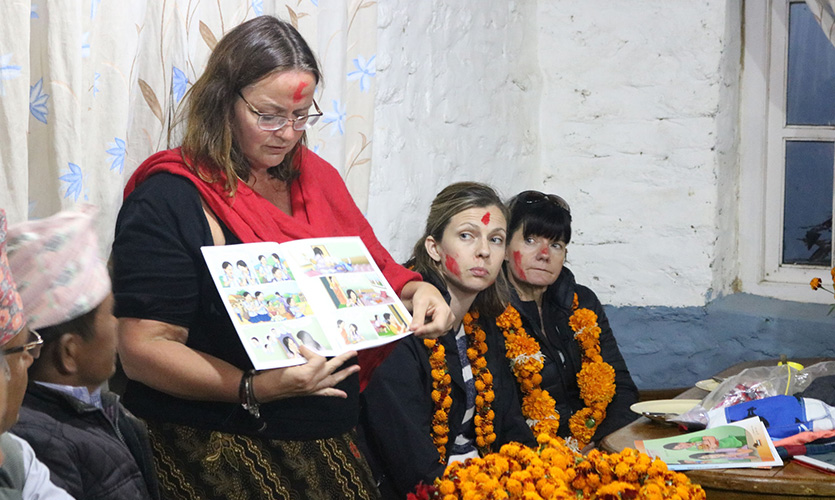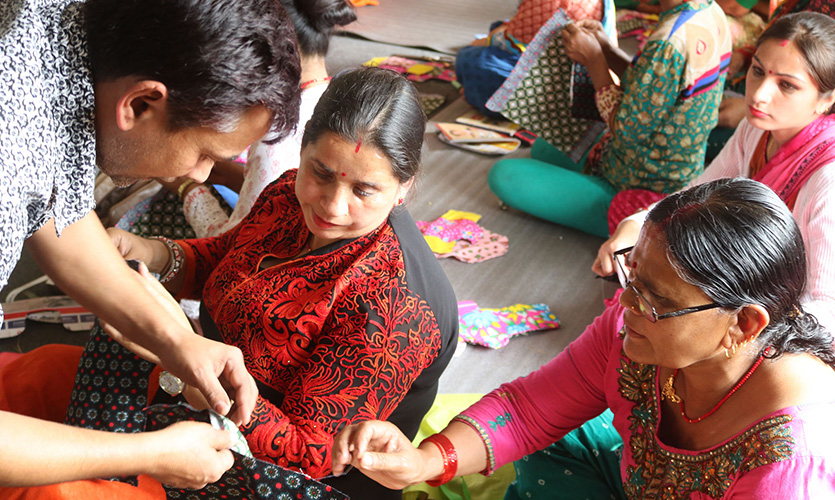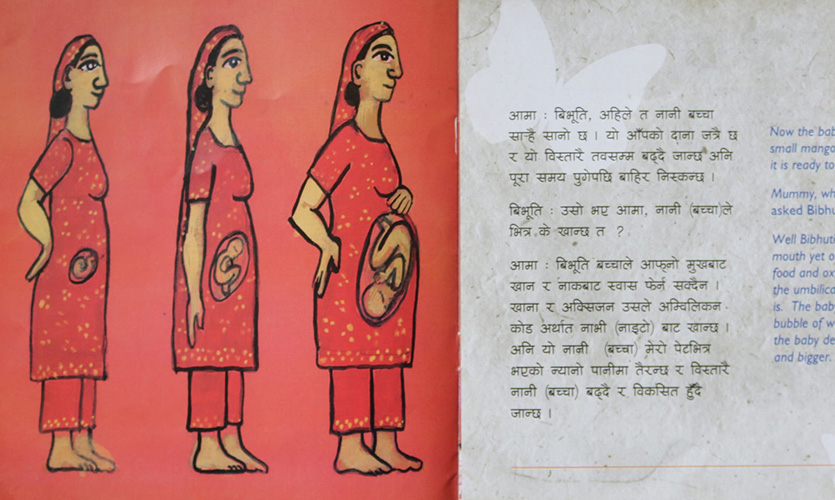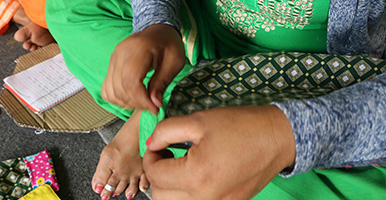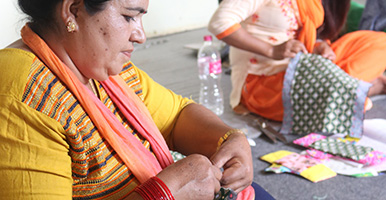About the Dignity Without Danger research
Understanding menstrual exclusion in Nepal
The Dignity Without Danger project follows on from a British Academy/Leverhulme Small Research Grant that evaluated the impact of the distribution of reusable sanitary pads (2017-2018). This study found that:
- there is a lack of knowledge of reproductive health
- many women are unable to manage their periods with dignity
- wide range of kits being made and distributed both locally and donated
- there is a strong network of NGOs and activists working in Nepal to tackle to tackle these challenges
- education and working with the local community is key to enable change
Find out more about this research project
About our research methods
In order to reduce the suffering, discrimination and violence against menstruating women and girls, and to promote partnership for sustainable human development, we have identified a need to work with local actors and communities. Working with existing local partners, we will utilise creative ethnographic methods, supported by training, in seven diverse districts in Nepal. We will build research capacity of academic and non-governmental organisations. By exploring and connecting disparate stories, artefacts and narratives, we will deepen understanding enabling local stakeholders to challenge exclusionary practices. This will directly impact on current initiatives in Nepal working to support women and girls accessing their rights to reproductive health, dignity and enhance sustainable human development.
Dignity Without Danger will conduct collaborative action research to unravel untold, often secret, forms of knowledge and belief surrounding menstruation. We will conduct research in all seven provinces of Nepal to uncover diverse practices and traditional belief systems. This will enable us and our partners to ultimately promote dignified periods for menstruating women and girls in Nepal with potential for application in other cultures who practice menstrual exclusion.
How we'll make an impact
We work with partners that represent a wide range of sectors such as sanitation, health, gender and education, enabling us to develop robust pathways to impact due to their role on governmental committees and through their ongoing work with the Menstrual Health Management Partnership Alliance. We will support the development of a local hub to share good practice. Moreover, we are committed to sharing the findings from Nepal within the wider South Asia region through relevant conferences and forums.
Our previous British Academy research highlighted the need for locally-generated material available in multiple formats hence outputs will focus on accessible dissemination beyond academia. We will design a robust dissemination strategy with key partners/stakeholders in Nepal. Our outputs will include:
- Social media campaign including multimedia/audio visual outputs: short films, podcasts and blogs used to influence social media users (in Nepal and beyond) that can also be used in advocacy resources. @DWDNepal Twitter feed will provide updates on the project
- Educational material for both formal and non-formal settings (e.g. lesson/workshop plans and facilitator guides, community radio, online and print resources for use by schools, community, health and local development groups and in teacher, social work and health higher education colleges) to improve the quality of interventions in diverse communities (co-created with partners)
- Policy dialogues and briefings for stakeholders and relevant Nepali government departments including the Ministry of Women, Children and Senior Citizens, Ministry of Education Science and Technology, Ministry of Health and Population, Ministry Water Supply. We will also engage with relevant UK All-Party Parliamentary Groups
- Academic outputs will include journal articles and conference presentations at various international and Nepali conferences
Further information
You can discover more about the issues surrounding menstrual health and exclusion by reading some of these articles:


